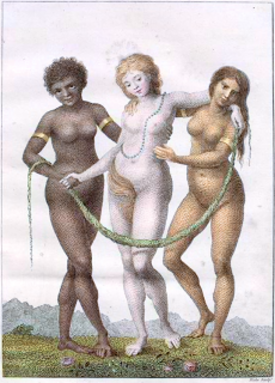A blind spot in Dutch history

Sunday, January 23, 2011 – by Sharida Mohamedjoesoef
Time for a new post. Visited the literary festival Writers Unlimited last night in The Hague. Formerly known as Winternachten, this year's theme was Great Expectations with a special focus on - surprise surprise - Surinamese and Antillean literature. I went there because the author of The Black Lord, Rihana Jamaludin, was going to be interviewed. Her new book Kuis (Chastity) is out now.
Again it struck me how little the Dutch know about their own history. You tell me, how can you boss around tens of thousands people for some 300 years (read: slavery), be responsible for the displacement of thousands of immigrants from India, China and Indonesia and then basically know nothing about them, historically, culturally and religiously, let alone take responsibility?
Where the Americans and Brits draw inspiration from their past and its black pages, the Dutch have remained very very quiet. Oh yes, there is talk about the VOC mentality and about the heroics of that famous Dutch admiral Michiel de Ruyter (1607 - 1676), but there is an eardeafening silence when it comes to the man's cargo. Ignorance? Some form of collective denial?
In the UK they have the Booker Prize. It was established some forty years ago with the aim to create an English-language Prix Concourt, an award that would encourage the wider reading of the very best in fiction across the UK and the Commonwealth (former British colonies).
Winners of the prize can look forward not only to worldwide recognition but also a place in the history of English literature. Contenders over the years have ranged from well established authors to first time novelists. To name but a few: Arundhati Roy for The God of Smalls Things, Aravind Adiga for The White Tiger, Kiran Desai for The Inheritance of Loss, Michael Ondaatje for The English Patient, Salman Rushdie for Midnight's Children. The list goes on and on and on.
Is it then that Surinam does not produce quality literature? No, of course not. Don't even embark on that train of thought. It is just that this quality is unknown to a wider audience. I guess it was Cynthi
a McLeod who put Surinam really on the literary map with her books, especially The Cost of Sugar which is being made into a film. One might argue about the literary quality of McLeod's books, but no such argument would hold up in the case of The Black Lord, which in my humble opinion is a much better more mature book that should be made into a film (see my earlier post).
Mrs Jamaludin's second novel is out now: Kuis (Chastity) and again an amazingly intriguing cover. This time with a chastity belt. Now, according to Wikipedia a chastity belt is a locking item of clothing designed to prevent sexual intercourse. They may be used to protect the wearer from rape or temptation. Some devices have been designed with additional features to prevent masturbation. Chastity belts have been created for males and females.
This is where it becomes interesting. The Wikipedia definition continues by stating that the term "chastity belt" is also used as a metaphor in modern English to imply overprotectiveness ... providing unnecessary or unwanted protection.
Protection from what? From the truth? From that other perspective on Dutch history? The perspective where a spade is a spade? Where slavery is slavery?
sharida-mohamedjoesoef.blogspot.com